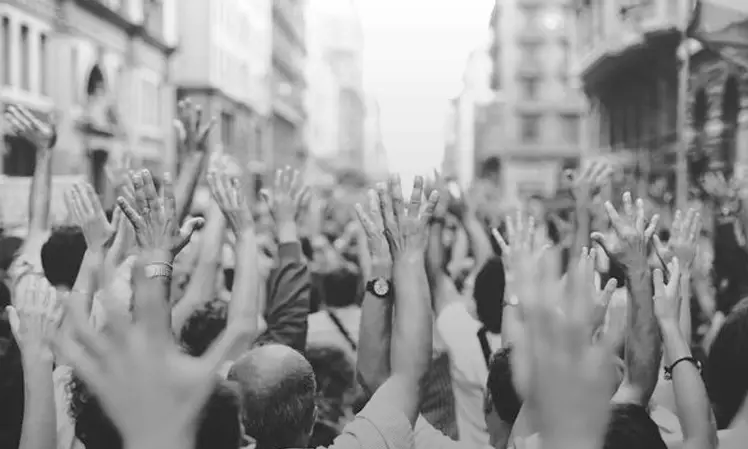Suppose a distinctive characteristic of populism is the defense of a people excluded from the social and political benefits of democracy. Why do its discourse and actions generate so much controversy? Why would we oppose a project that seeks to improve society?
Populism has perplexed us because, even though we may have intuitions or certainties about its dangers and excesses, any criticism seems to imply that we are denying the existence of the social injustices it denounces.
To move beyond this conceptual and political perplexity, we must distance ourselves from its idea of “the people” and begin to ask how populism defines its adversaries, for therein lies the key to either improving or combating it.
One thing is certain about populism: its discourse is based on a social division, the content of which changes depending on the country, leader, or context, but whose emergence is always identified with the creation of two politically and morally antagonistic groups.
In recent years, we have seen how populist leaders around the world have used this social division—whether based on class, nationality, ethnicity, or culture—as a political ideology during their electoral campaigns and even as a criterion for decision-making once in government.
In Mexico, throughout his entire six-year term, former president Andrés Manuel López Obrador, in his morning press conferences known as “la mañanera,” ingrained in our political imagination the idea that “conservatives” were the enemy of the “good people.” Through this division—by which he understood society and exercised his government—his populist credentials (without this being inherently a negative label) were unquestionable.
However, it was also undeniable that through these terms, he promoted an atmosphere of affective polarization that created an impermeable barrier against the country’s political and social diversity. Those seeking a place in the public sphere to define their position were forced to choose one side or the other.
In a recently published study on this subject, we analyzed more than 1,000 of López Obrador’s morning conferences to identify the defining characteristics of “conservatives” and, based on these, to understand the impact his discourse could have on democratic practice. Here are some of the findings.
Within the corpus of conferences analyzed between 2018 and 2023, 734 of them focused primarily on “conservatives,” with a total of 2,388 mentions of that term and its variations (such as conservative, conservatism, conservative ideology, among others). Using the Atlas.ti & OpenAI software, we were able to isolate the words that, by consistently appearing alongside “conservative,” create a synonymous association.
These words were as follows: corrupt, hypocrite, authoritarian, opposed to change, elitist, racist, and adversary. Through the aforementioned software, it was demonstrated that in López Obrador’s populist discourse, these words were not used in any other context, giving them a symbolic and political force that allowed him to position “conservatives” as enemies of his project and of the people he represented.
Based on these results, one could argue that “conservative” becomes a performative signifier—that is, a word that implies an action: conservative equals being corrupt, lying, stealing, and discriminating. In this sense, within Obradorist populism, the category of “conservative” refers to someone whose actions and political stance place them in the realm of illegality and immorality, effectively excluding them from political participation in collective affairs.
What are the implications of this finding for the relationship between populism and democracy? Let us remember that democracy is the only form of government that recognizes each person as having equal rights and the capacity to participate in collective decision-making. Despite the challenges involved in its practice, this possibility of equal participation ensures that political decisions are binding for all.
Populist discourse becomes negative for democracy when, by means of social division, it threatens to strip equal participation rights from those it considers enemies. If populist rhetoric is loaded with performativity that, on one hand, does not promote the progression of rights and freedoms and, on the other, relies on moral disqualification that places its adversary in the realm of illegality and immorality, then it creates a conflict that can only be resolved by eliminating one side.
From these elements, populist discourse exercises affective polarization—that is, a top-down discourse that constructs the “other” as an antagonist, imbued with a “significant affective dimension” that elicits a divisive reaction in people: either you are with me, the defender of the people, or you are with the conservatives—corrupt, hypocritical, authoritarian, opposed to change, racist, and elitist.
For a long time, populism has been defined by its characterization of “the people,” which is indeed true. However, to move beyond the perplexity it has created, it is time to evaluate its democratic credentials based on how it characterizes its adversaries. If these adversaries are conceived as enemies without equal rights to participation, then populism is detrimental to democracy.
*Machine translation proofread by Janaína da Silva.













